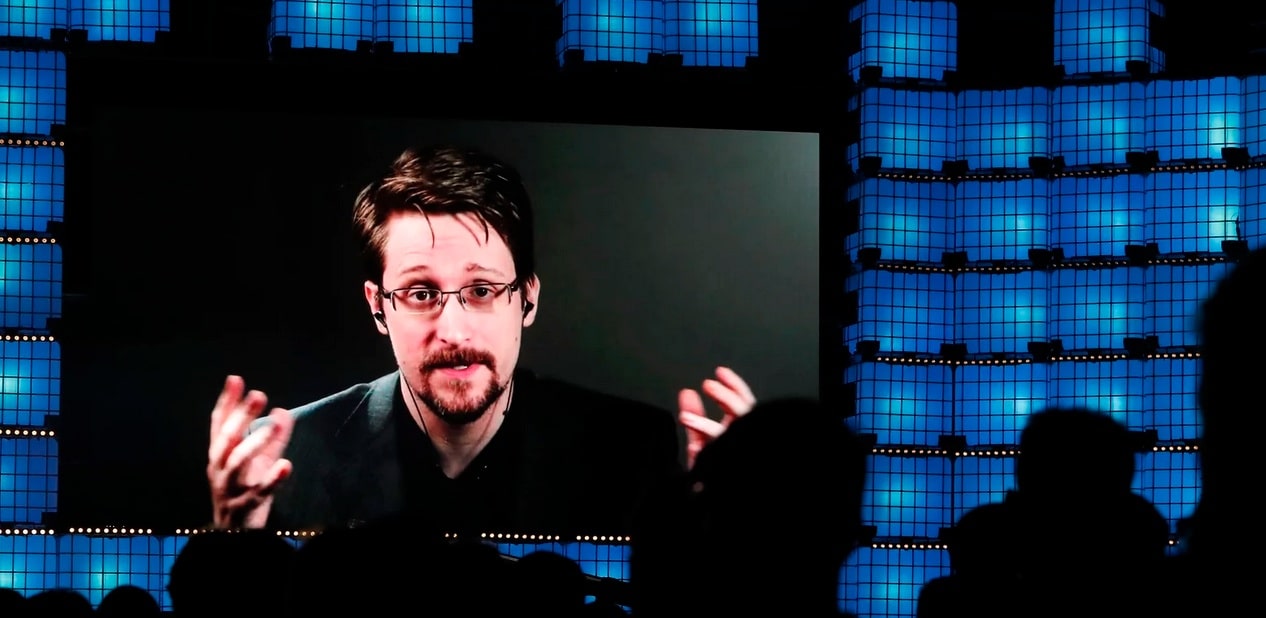
This week marks the 10th anniversary of the first story featuring National Security Agency (NSA) contractor-turned-whistleblower Edward Snowden’s initial revelation: the role of Verizon in aiding NSA’s telephone metadata mass surveillance program.
As the Guardian noted at the time, “The court order appears to explain the numerous cryptic public warnings by two US senators, Ron Wyden and Mark Udall… that the US government is relying on ‘secret legal interpretations’ to claim surveillance powers so broad that the American public would be ‘stunned’ to learn of the kind of domestic spying being conducted.”
The Verizon revelation and the many others that followed in the months after it underscored the most consequential effect of Snowden going public: NSA’s ostensible overseers – the House and Senate Intelligence Committees – had been witting of the mass surveillance and instead of stopping it had gone along with it.
Worse, through the annual appropriations process, Congress had given NSA (and the FBI) the money to continue that mass surveillance. American taxpayers were paying for the “privilege” of being spied on at scale by their own government.
And as I’ve noted previously, Snowden’s efforts to inform his fellow Americans of the surveillance dragnet under which they now operated were met with scorn or outright attacks, some from the press but most from members of Congress whose oversight failures Snowden had effectively exposed.
Fifty years earlier, in an era that saw similar whistleblower-driven revelations of widespread illegal federal government surveillance, Congress was far less amenable to such executive branch misconduct. In 1975, the work of the Senate investigative committee, led by the late Senator Frank Church (D-ID), exposed massive, previously undisclosed unconstitutional surveillance and political repression operations aimed at literally hundreds of thousands of Americans.
Church and his colleagues subsequently passed legislation designed to prevent such abuses in the future: the creation of the House and SenateIntelligence Committees, the Foreign Intelligence Surveillance Act (FISA), and the Inspector General Act. And even though one can argue persuasively that the FBI, NSA, and other federal intelligence and law enforcement entities have found ways around the Church Committee’s reforms, at least Church and his colleagues understood the magnitude of the threat to the constitutional order posed by executive branch surveillance overreach and tried to do something to end it.
In contrast, Snowden’s revelations produced a nearly opposite reaction, with no public hearings into the breadth and damage caused by the mass surveillance he exposed and only one weak and ineffectual legislative fix for the NSA telephone metadata program: the 2015 USA Freedom Act. It was the legislative and constitutional equivalent of putting a Band-Aid on a sucking chest wound.
It was also a testament to the power and influence of the nation’s national security establishment in shutting down any kind of meaningful surveillance reform effort, in no small part by indicting the whistleblower under the Espionage Act (no proof has ever surfaced that Snowden acted as the agent of a foreign power or gave legitimate U.S. secrets to one), seizing the royalties from his memoir, and refusing to consider allowing him to mount a public interest defense for his actions.
In that memoir, Snowden mused on the disparity in the treatment meted out to him and other whistleblowers versus officially sanctioned leaks (pp. 238-239):
“What makes one disclosure permissible, and another not? The answer is power. The answer is control. A disclosure is deemed acceptable only if it doesn’t challenge the fundamental prerogatives of an institution… To blow the whistle on secret programs, I’d also have to blow the whistle on the larger system of secrecy, to expose it not as the absolute prerogative of state that the [Intelligence Community] claimed it was but rather as an occasional privilege that the IC abused to subvert democratic oversight.”
Snowden’s error was in believing that meaningful, forceful, and effective democratic oversight of NSA, FBI and other federal law enforcement and intelligence components actually exists. The historical record at the time Snowden went public said otherwise, and that remains the case today.
Despite a fresh set of revelations of FBI and NSA abuses of the FISA Section 702 electronic mass surveillance program, no FBI or NSA officials have been sanctioned by the FISA court, much less lost their jobs as a result of their misconduct. That program is set to expire at the end of 2023, but anyone who believes its demise is a sure bet is only fooling themselves – in the same way that Edward Snowden tragically fooled himself into believing that exposing NSA and FBI surveillance crimes would somehow trigger a new age of surveillance reform and accountability.
Americans will continue to be federal government surveillance targets unless the public ejects from Congress and the White House those federal officials who continue to act as if Americans are suspects first and citizens a very distant second.
Former CIA analyst and ex-House senior policy advisor Patrick G. Eddington is a senior fellow at the Cato Institute.
Reprinted with permission from Antiwar.com.

